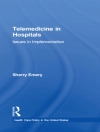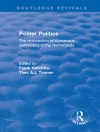The emergence of Zika virus in 2015 challenged conventional ideas of mosquito-borne diseases, tested the resilience of health systems and embedded itself within local sociocultural worlds, with major implications for environmental, sexual, reproductive and paediatric health. This book explores this complex viral epidemic and situates it within its broader social, epidemiological and historical context in Latin America and the Caribbean. The chapters include a diverse set of case studies from scholars and health practitioners working across the region, from Brazil, Venezuela, Ecuador, Mexico, Colombia, the United States and Haiti. The book explores how mosquito-borne disease epidemics (not only Zika but also chikungunya, dengue and malaria) intersect with social change and health governance. By doing so, the authors reflect on the ways in which situated knowledge and social science approaches can contribute to more effective health policy and practice for mosquito-borne disease threats in a changing world.
The Open Access version of this book, available at http://www.tandfebooks.com , has been made available under a Creative Commons Attribution-Non Commercial-No Derivatives 4.0 license.












